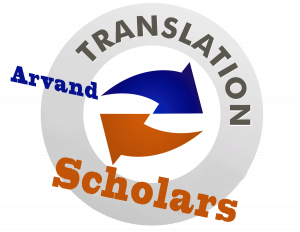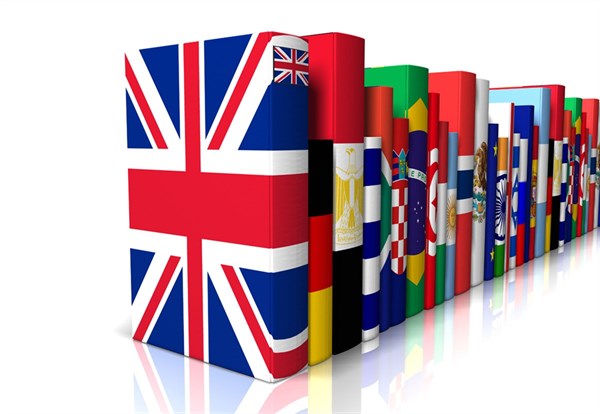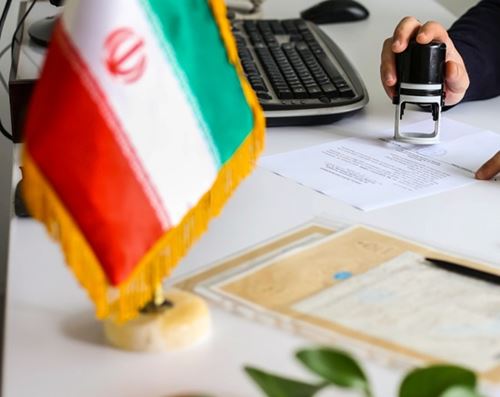We help you plan your future
Arvand Translation Scholars Institute (ATSI)
Institute of Translation and Interpreting, Online Certified Translation (Supported more than 75 Languages)
Promoting the Highest Standards in the Profession and Certified Translation
You may make an inquiry about the authentication of translations by sending the Reference No. to the following e-mail address:
LSP@atsi.online
Registered Institute
License No.100 – Arvand Free Zone
National ID: 14006584479- Legal Personality
Registered Trademark No. 338539
International Classification and Services: Translation, Editing Texts, Research & Education, Advertisement, Distribution, and Computer Database Collection
Verified Credentials
- Member of National Association of Judiciary Interpreters & Translators, NAJIT No.: 9756
- International Training Certificate of Nobel- Germany
- International Training Certificate of INT Unions- America
- Certificate of Quality Assessors of Middle East (QAM)
- Association of Quality development & Improvement of IRAN’s Industries
- Europe CIP Certificate of Professional Translation (TCKIT Germany Certificate)
- Certified member of Tehran Interpreters and Translators Association
- International Federation of Translators (FIT)
- Member of American Management Association (AMA)
Payment Method
Wire Transfer
IBAN: IR16 01200 10000 004133434750 (IRR)
IBAN: IR460560 985174003135965001 (USD)
Account Name: Seyedeh Sara Amini
Our Services
ATSI (ARVAND TRANSLATION SCHOLARS INSTITUTE) presents all Translation in the field of Legal, Financial, Educational, Manufacturing & Engineering, IT & Software, Government, Mobile & Video Games, Marketing & Advertising, Retail & E-commerce, Tourism, Management, Media & Publishing, MEDIA, Press Releases, Case Studies, Affiliate Program, Brochures, Contract, Terms & Conditions, Official Documents, Certified Translation, Books, Pamphlets, News and so on. Other services are Proofreading, Editing, Localization, Research & Education, Issuing, Distribution, Advertisement, and Computer-Based Data Collection.
Judicial Translation
All instruments and correspondences related to the judicial power and embassy are translated. We offer a certified translation for our clients if they apply it. Some documents should be sealed by the Ministry of Foreign Affairs and the Administration of Justice in addition to the Translator’s Seal & Signature.
Business Translation
All contract translation, balance sheet translation, memorandum of association, certificate of trademark registration, auditing, accounting, management, civil engineering, industrial translation, scientific translation, and many other field such as shipping and logistic translation, financial translation, bill of lading and so on will be translated with the best and accurate quality on time.
Legal Translation
We provide you all legal documents such as, birth certificate, wedding certificate, divorce Certificate, work certificate, driving license, education certificate, employment certificate, insurance certificate, title deed and so on. You may make an inquiry about the authentication of translations by sending the Date & Reference Number to the following e-mail address: LSP@atsi.online
Educational Translation
Personal translation, translation of book and pamphlet, news, student works, translation of web site and game software, educational booklet,localization, editing and proofreading are provided by the specialized translators. Our educational translations encompass a complete spectrum of material from diplomas and transcripts to school forms and specialized content including research papers, university websites and online learning.
When To Use Certified Translation
A certified translation means that the translator or the language service provider (LSP) has issued a signed statement declaring that the translation that has been done is an accurate and true representation of the original document.
Certified translations are normally required when submitting legal documents. These include marriage, death or birth certificates, adoption agreements, supporting documents for immigration, court transcripts, service agreements or business contracts that are not written in the official language of the country where the documents are to be submitted.
Do not get confused between a certified translator and a certified translation, as these terms are also different from each other. When a professional translator passes an exam and is certified by the American Translators Association or other organizations, he or she is called a certified translator.
On the other hand, a certified translation does not need to be done by a certified translator. Instead, it is a translation that a qualified LSP or translator certifies to be an exact and accurate translation of the original or source document. A signed Certificate of Accuracy is included in the completed translation when submitted to the client.
Reputable translation companies usually assign translation work that needs certification to their most qualified and highly experienced translators. It is a standard for the translation company to have an editor proofread the final translation. Only when the translation has passed quality checking will it be certified.
A certified translation provides a legal record. It is the reason why government and legal bodies always require the submission of certified translations.
For all types of legal paperwork, a certified translation is most likely to be required. An example would be a trial transcript or evidence that is available in another language.
Immigration is one of the major areas where certified translation is necessary. If you are applying for a temporary visa or residency in a foreign country such as the United States, the country requires that all your personal documents must be submitted in the official language of the country. In case of the U.S., you need your documents translated into English and all of them must be certified.
Foreign students who want to further their education by applying to colleges and universities in the United States also need to submit a certified translation of their transcripts and diplomas. There are also schools that require submission of the original transcript of records along with the certified translation.
Other Examples
*Legal documents required for court cases that are not written in English
*Certificates needed for official use, such as birth, death, marriage and divorce certificates
*Criminal record checks needed for recruitment and HR purposes and visa applications
*Regulatory documents such as informed consents, research data forms, protocols and case reports
*Patents
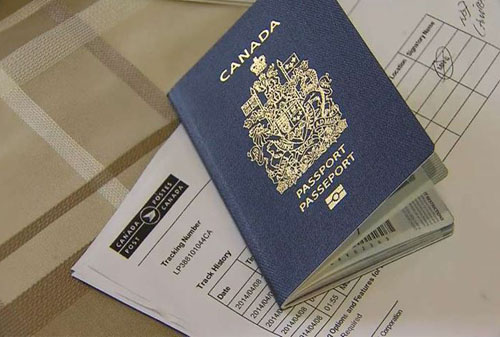
CANADA PASSPORT
Requirements for Certified Translations
Certified translations, especially those that will be used for Canada and U.S. immigration purposes must satisfy the following requirements:
The original document must be translated directly in its entirety. All the signatures, marks, dashes, stamps and seals must be translated as well. The translator must mark the parts in the original that are not clear with “not legible” in the English translation.
The translation must visually match the appearance of the original. Seals, signatures and other marks should appear in the same place in the translation just like in the original.
Use a professional translator or translation company for certified translation. Even if you can speak in English and has knowledge of the source language you are not qualified to do certified translation. If you do not want to jeopardize your immigration application, follow the rules and work with a professional translator.
You use certified translations of documents not written in English if you are submitting your immigration application in the United States. If you are submitting your application to a U.S. Embassy or Consulate in the country where you reside, the certified translations must also be notarized.
Different Requirements in Different Countries
In the United States, a professional translator or an LSP provides certified translations. The translated document is accompanied by a certificate attesting to the quality of the translation and that it is a direct translation of the source document.
The certificate bears the name and signature of the translator or translation company and its representative, the date it was executed, contact information of the translator or the company and the official seal of the language service provider. The translator also certifies that he or she is qualified to translate from the source language to the target language.
When submitting the certified translation, it must include the certification letter and the original or source document. The original copy of the document does not need to be the source document itself. It could be a legible scanned copy or photocopy of the original.
In other places, such as in Quebec, Canada, the translator must also be certified. If the translator is an independent one, he or she must sign the official translator’s declaration and either embossing or rubber-stamping each page of the translation with either a Quebec professional order or the professional seal of the translator issued by the British Columbia professional association.
Just like in the U.S., a notary public in Quebec only requires the translator to swear an oath and sign an affidavit for the translation to be notarized. It is a formal certificate of the translator declaring that the translation is a true translation of the source, without regard for its quality.
In Spain and Brazil for example, institutions will only accept certified translations done by government-certified or sworn translators. A sworn translation (also called a public, legal, official or certified translation) of a document is endorsed by the signature and seal of a Sworn Translator who is authorized by the Foreign Office to translate official documents. These translations are regarded as having formal status by the authorities.
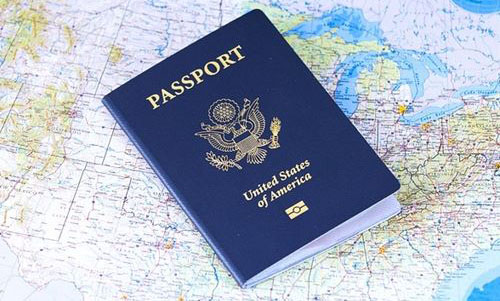
USA PASSPORT
WHO ARE SWORN TRANSLATORS?
A sworn translator is someone who is authorized by the Foreign Office to translate official documents. Accredited translators and interpreters are known by different official names according to the country. For example, in Spain, where Spanish is the language in question, the official denomination is sworn translator-interpreter (traductor-intérprete jurado), although it’s more common to use the title sworn translator (traductor jurado).
The name and details of a sworn interpreter are registered in the Office of Language Interpretation in Madrid, and in the regional office of the District Council. By signing and sealing, the translator assumes responsibility for the document.
A sworn translation is different from a normal translation insofar as it is signed and sealed by a sworn translator and is therefore regarded as having official and formal status by the authorities. Furthermore, sworn translations can only be provided in hard copies, given that they need to be signed and stamped by the translator. However, the original documents can be passed on in any form (email, fax, etc.). Although sworn translations can be made on stamped paper, this is not a requirement of the Foreign Office, and these days it is hardly used. In addition, it can be accompanied by additional documents, such as The Hague Apostillle.
Each sworn translation needs to carry a certificate whose signature and seal have been registered by the Foreign Office through the District Council of the region in which the translator works.
THE FORMAT OF A SWORN TRANSLATION
Sworn translations ought to contain the signature and seal of a sworn translator:
- Signature: Mr / Mrs (name and surname), Sworn Interpreter of (language), certifies that the present document is a faithful and complete translation into (destination language) of a document originally written in (language of the original). In (location), on (date).
- Seal: Name, the heading “sworn interpreter of…” or “sworn translator-interpreter of…” followed by the designated language, address, telephone number and, if applicable, fax .
WHEN IS A SWORN TRANSLATION REQUIRED?
A document that is written in a foreign language and presented to official bodies (e.g. administrative bodies, a university, a court, a notary) is normally accompanied by an exact Sworn Translation of the original text. In this case, a sworn translator is required.
On the other hand, a sworn translation can be used to guarantee the accuracy of the information translated, given that a sworn translator takes responsibility for the translation with his/her signature and seal.
WHICH DOCUMENTS DOES A SWORN TRANSLATOR USUALLY TRANSLATE?
Many institutions require a sworn translation when dealing with documents in a foreign language. For example, when validating a foreign university degree in the Ministry of Education, a sworn translation is required. Another time when sworn translations are needed is when studying abroad, where it is necessary to present an academic record, which should be certified by a sworn translator. In the case of marrying abroad, a sworn translation of the birth certificate of the foreign spouse(s) is usually required. In the world of business, there are many cases in which a sworn translation is needed, for example, when a company has commercial relations abroad, it is commonplace to require a sworn translation of the certificate of incorporation, statutes, and other internal documents.
